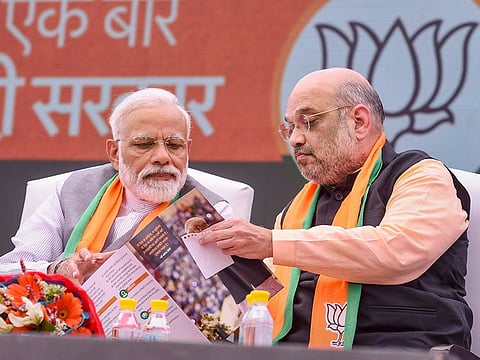India must clear ambiguity over NRC
Modi government should reach out to the Muslims and victims of Delhi riots

The United Nations Commissioner for Human Rights (UNHRC) has approached India’s Supreme Court over the country’s controversial Citizenship Amendment Act. A UN body seeking to be a party in a judicial case challenging a law passed by the country’s legislature is rare, if not unprecedented.
The global human rights wants to be made a party in the petitions challenging the law filed by various organisations and individuals.
New Delhi has reacted swiftly, saying that the law, enacted on December 11 last year, is an internal matter. Technically, India’s argument is right. A nation has the absolute sovereign right to enact laws duly passed by elected lawmakers.
In recent weeks, Modi government has faced growing international criticism, including by European, US lawmakers and the global mediaGulf News
New Delhi has also argued that the law, also known as CAA, is constitutionally valid. However, the constitutional validity of the law is yet to be tested and it will face judicial scrutiny when Supreme Court starts hearing a total of 140 petitions this month.
But in a globalised world, can a nation of over 1.3 billion people hide behind such technicalities? India has the second largest population of Muslims who fear this law is discriminatory and they will be subjected to harassment by officials when National Register of Citizens or NRC is rolled out across the country.
Widespread fears
There are widespread fears that both Muslims and Hindus will struggle to provide documentary evidence to prove they are Indian citizens.
Since the enactment of the law, 69 people have died in various incidents and protests have erupted in over 55 cities. In capital Delhi, 47 people died when bloody riots broke out after Prime Minister Narendra Modi’s party leaders made provocative speeches and threatened to evict anti-CAA protesters last month.
In recent weeks, Modi government has faced growing international criticism, including by European, US lawmakers and the global media. But it has done little to convincingly assure the international community that concerns of Indian Muslims will be addressed. Domestically too, the Modi government has made no attempt to reach out to the protesters.
The UNHCR has said that CAA is “fundamentally discriminatory in nature”, pointing out that India is a signatory to international conventions for elimination of racial discrimination.
This step by the UN body will invite further attention to the law and New Delhi must take steps to clear ambiguity over the NRC and address concerns of the international community. Also, Modi government must reach out to the Muslim protesters and the victims of Delhi riots urgently.



